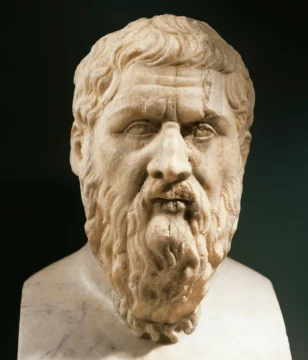by John Hartley

“To err is human,” observed the poet, Alexander Pope. Yet, why do we consciously choose to err from right action against our better judgement? Anyone who has tried to follow a diet or maintain a strict exercise regime will understand what can sometimes feel like an inner battle. Yet why do we stray from virtue, choosing paths we know will lead to inevitable suffering? Force of habit? Addiction? Weakness of will?
This crisis of moral choice lies at the heart of Western philosophy, as the Ancients crafted their doctrines to explain why individuals often fail to realize their good intentions. “For I have the desire to do what is good, but I cannot carry it out.” Observed St Paul, “For what I do is not the good I want to do; no, the evil I do not want to do–this I keep on doing.”
Akrasia in ancient thought
Homer’s Iliad paints a poignant portrait of humanity, ensnared in a cycle of necessity. This relentless loop can only be broken by wisdom and self-knowledge, encapsulated in the Delphic maxim “know thyself.” Socrates, however, argued that true knowledge of the good naturally precludes evil actions (If you really know what is right you will not do wrong!) He contends that misdeeds arise not from a willful defiance of the good but from flawed moral judgment—a tragic aberration, mistaking evil for good in the heat of the moment.

Plato linked wisdom and necessity to the duality of good and evil. He envisions self-realization and ordered integration as pathways to the good (inefficiency and unrealized potential signify malevolence). For Plato, good and evil are not external forces but internal currents: one flowing with love and altruism, the other emanating greed, envy, and malice.
The ascent to goodness, according to Plato, hinges on self-mastery and moral transformation, guiding one’s life towards the ideal form of goodness. Stoicism, of course, has experienced something of a resurgence of late, owing to Gen Z influences advocating extreme self discipline and heightened personal responsibility. Read more »
